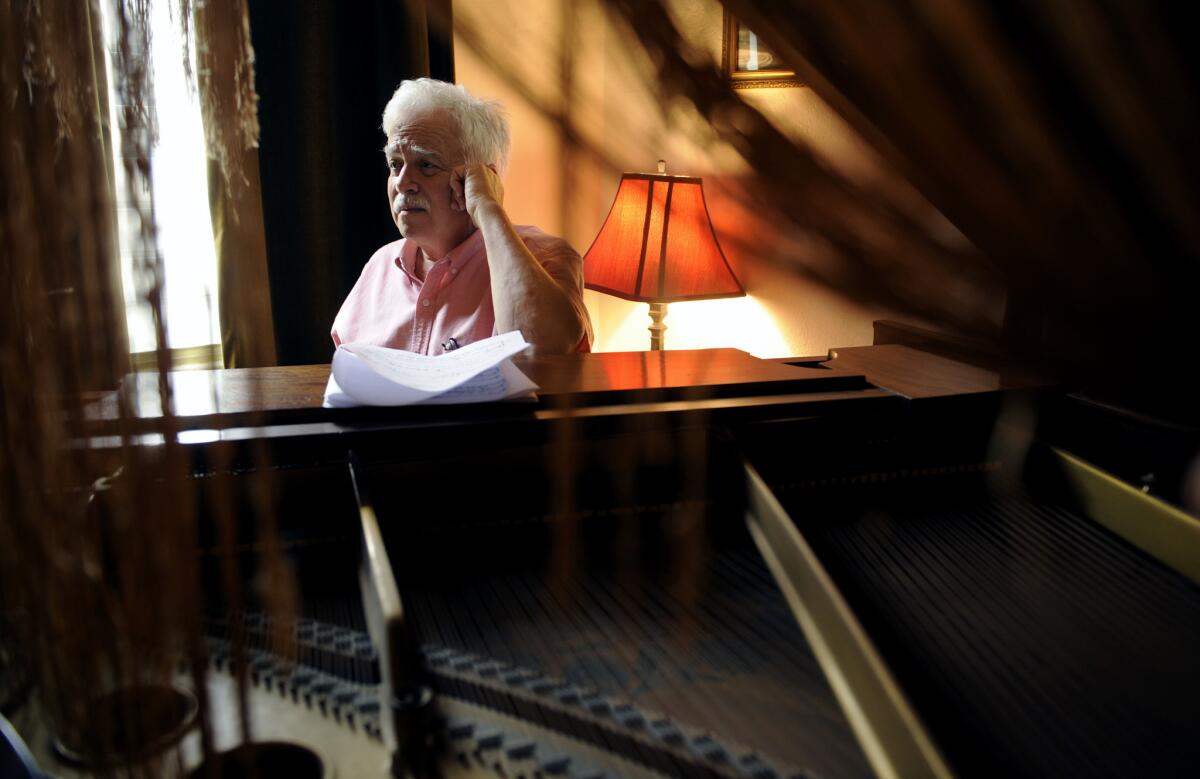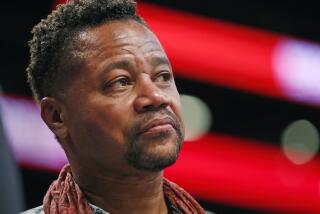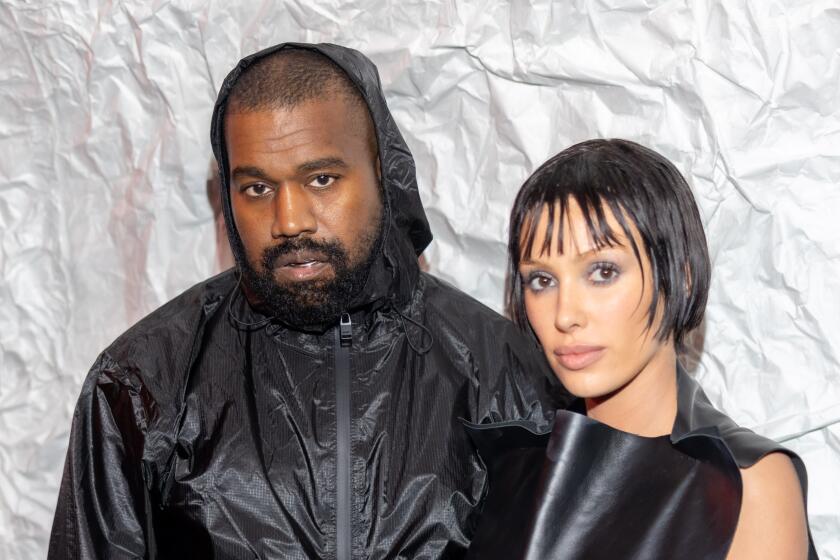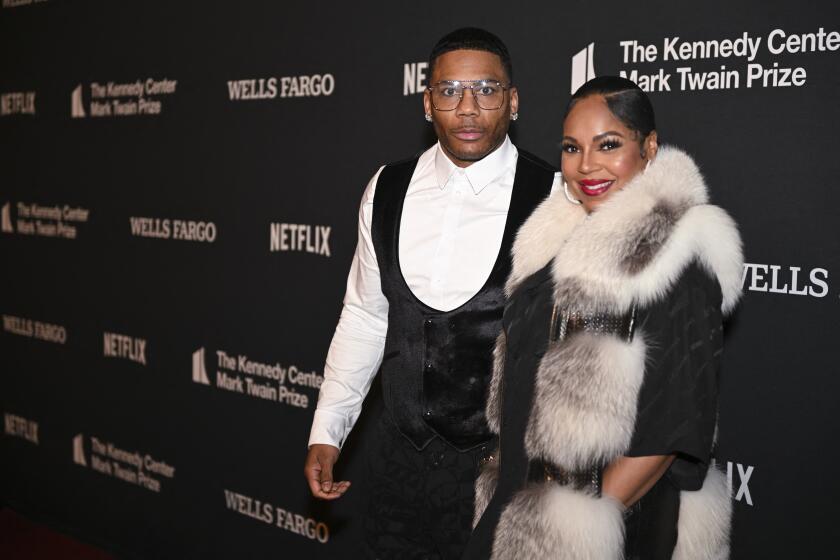Van Dyke Parks on ‘Blurred Lines’ verdict: ‘Too little, too late’

On his critically acclaimed 1968 solo album debut “Song Cycle,” singer-multi-instrumentalist-composer Van Dyke Parks included a song titled “Public Domain.” The title itself immediately acknowledged the important role in the pop music world of public domain—the body of music that’s free to musicians to quote or incorporate in their work however they see fit—and its flip side, the considerable trove of contemporary music protected by copyright.
“At age 23, when I did ‘Song Cycle,’ I was keenly aware of the conflict between copyright and public domain,” Parks told The Times. “It’s not given much attention in the era of streaming and downloading, and the free goods people have come to expect. It’s become more of a hot-button political item than ever before.”
In that context, Parks cheered Tuesday’s jury verdict in the copyright infringement case against Robin Thicke and Pharrell Williams over their megahit single “Blurred Lines,” which the jury found had infringed on Marvin Gaye’s 1977 hit “Got to Give It Up.” The jury ordered that Thicke and Williams pay more than $7.3 million to Gaye’s estate.
“This case has been of great interest to me as it has to do with sampling,” said Parks, who in addition to his series of solo albums has collaborated with a broad expanse of other musicians over the decades, perhaps most famously as lyricist for Brian Wilson on the Beach Boys’ storied “Smile” concept album. “This [‘Blurred Lines’] song is a glorified sample, and the man got caught. Why did he get caught? Because he created in his song a suable offense.”
“On principle, it’s of real import that this case prevailed in favor of the Marvin Gaye estate, and as far as I’m concerned, it’s too little, too late,” he said. “There should be no negotiation on payments to artists for their hard work. Somehow people are entertained by the idea of stealing music. I don’t think it’s cute.”
“The musicians I know have spent longer to learn what they do than surgeons in surgical theater. It takes a long time to become a significant musician,” Parks said. “But today many people have come to accept the idea you can steal stuff. No, you can’t steal stuff. That’s not free speech.”
He noted many instances in his own work in which he has quoted musicians and songs that influenced him, and the commonality in popular music of building on, amplifying, reacting to and repurposing what came before.
Ultimately, whether that constitutes legitimate homage or illegitimate theft “unfortunately it is a case-by-case situation. A blanket judgment cannot be made.”
Now that Thicke and Williams have announced their decision to appeal, it remains to be seen whether the jury’s decision will hold up. In the wake of the verdict, many musicians and musicologists have posted detailed analyses of the two songs, many concluding that however similar the two recordings sound, “Blurred Lines” departs in key ways as a musical composition and does not infringe on “Got to Give It Up.”
“Every great songwriter I know has hit a zone of possible infringement,” Parks said. “It’s the finest acrobatic act of all: finding an unsuable offense in music.
“The fact is, people do it all the time,” he said. “Every songwriter wants to have a tool of familiarity to gain entry into the casual observer’s ear. You end up with something that sounds like something you’ve heard before. That’s OK. I really do think it’s an art. Creating an unsuable offense is the art of music that is at once creative and familiar.
“But some people are ill equipped creatively themselves to avoid the appearance of plagiarism, and to avoid the appearance of plagiarism is a necessary part of a real artist’s objective. So on principle, I feel that the Gaye estate had every right to act as the aggrieved party.”
Follow @RandyLewis2 on Twitter for pop music coverage
ALSO:
GRAPHIC: ‘Blurred Lines’ vs. ‘Got to Give it Up’
How the ‘Blurred Lines’ case could have chilling effect on creativity
Robin Thicke on ‘Blurred Lines’: ‘I was high on Vicodin and alcohol’
Watch Robin Thicke sing ‘Blurred Lines’ with Jimmy Fallon, Roots
More to Read
The biggest entertainment stories
Get our big stories about Hollywood, film, television, music, arts, culture and more right in your inbox as soon as they publish.
You may occasionally receive promotional content from the Los Angeles Times.







